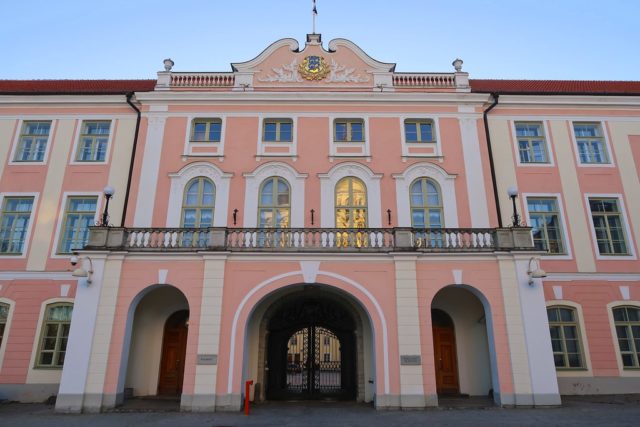
Victims of Soviet-Era Russification Policies Boost Their Support for Non-Russian Minorities in Russia
Publication: Eurasia Daily Monitor Volume: 18 Issue: 168
By:

The recent defeat in the Estonian parliament of a resolution denouncing Moscow’s russification of non-Russian peoples reflects two diametrically opposed trends. On the one hand, the down-vote is a product of the increasing unwillingness of Europe and the West to focus attention on this issue—an unwillingness actively supported by Moscow and Russian diasporas. But on the other hand, the offering of this resolution in the first place reflects a groundswell of recognition among Estonians and other victims of Soviet russification efforts: ethnic minorities in today’s Russian Federation are being subject to even more intense russification efforts by the Vladimir Putin regime than was the case during most of the Soviet period. To these groups, the contemporary Russian effort ultimately represents a threat to themselves as Russia’s neighbors. In this case, the Kremlin won out. But elsewhere in Estonia and the former Communist bloc the reverse has been true. Furthermore, the defeat of the resolution in Estonia’s legislature, the Riigikogu, is unlikely to end the efforts of local activists to bring this looming tragedy to the attention of the rest of the world.
On October 27, the Estonian parliament voted down, 46 to 15, a resolution offered by the Conservative Party to denounce the Kremlin’s policy of russifying the non-Russian peoples of the Russian Federation. Its primary backer, deputy Ruuben Kaalep, said the coalition parties that form the current government of Estonia had their own reasons for voting against the measure. The Center Party, he pointed out, is dependent on ethnic-Russian votes and does not want to offend Moscow. Additionally, the pro-Western Reform Party does not want to take any such action without first coordinating it with the European Union. But the Conservative Party leader said this vote is not the end of the story. Estonians will speak out, and the resolution will be offered again in the hopes of its eventual passage (Idel.Realii, October 28, 29).
Kaalep suggested that, given their own experience with Moscow’s russification efforts, Estonians have no choice but to support the rights of indigenous nations and the principle of self-determination throughout the world, “especially among the Finno-Ugric and other peoples of Russia.” This must be a guiding principle of Tallinn’s foreign policy, and any retreat from it will only lead Moscow to press harder both at home and abroad. Moreover, clarifying Estonia’s support for those principles sends a signal of encouragement to those who are now victimized by Moscow’s policies just as the West’s non-recognition policy psychologically bolstered Estonians and their Baltic neighbors in Soviet times. “Estonians share a common historical fate with the indigenous peoples of Russia that are suffering from Moscow’s policies now,” Kaalep argued. “In end, we are one of the peoples that also suffered from this policy” (Idel.Realii, October 29).
During the debate on his proposal, Kaalep compared what Moscow is doing to the non-Russians to what Beijing is imposing on the Muslim peoples of Xinjiang. “The only difference” between the two situations, he contended, is that “China has concentration camps while Russia still does not. But the goals of both regimes are the same—the cultural genocide” of minorities. Those who have suffered from those regimes in the past must tell the world about what is going on and make clear that “these regimes are parts of a single picture.” His opponents rejected this comparison and suggested that Ukraine’s treatment of its Hungarian minority should be considered as well. Kaalep responded that Kyiv does have problems with the Hungarian language but insisted that the Ukrainian government’s approach is entirely different from Moscow’s (Idel.Realii, October 29).
While the resolution was defeated in the Estonian parliament, the northernmost Baltic State already has an active program of supporting the non-Russian peoples of the Russian Federation. Since the recovery of its de facto independence in 1991, Estonia has been a leader in cooperation with the Finno-Ugric nations inside the Russian Federation (see EDM, June 23). It organizes annual meetings with them and speaks out in their defense. Its universities have programs for the study of these groups. Moreover, Estonia has become a place of exile for those who, by defending ethnic and regional minorities, find it too dangerous to remain in Putin’s Russia. These regional and non-Russian emigres typically receive less attention than do Moscow dissidents who have left, but they are increasingly important voices at the meetings that the latter organize (Grani.ru, November 22, 2019). While the West has generally ignored their statements, Moscow has not, responding with attacks similar to those the Soviet government leveled against Western support for the Baltic countries and other non-Russians before 1991 (Windowoneurasia2.blogspot.com, October 23, 2019).
Estonia has followed the actions of Ukraine and Georgia, whose peoples also suffered from Russification in Soviet times. In recent years, Kyiv has focused attention on the fates of both ethnic Ukrainians in the Russian Federation and other minorities there (particularly in occupied Crimea—see EDM, May 30, 2019 and March 29, 2021), fearful that Moscow’s russification policies threaten the survival of these peoples and even of the Ukrainian state itself. Georgia has done much of the same, speaking out not only against russification but also against Moscow’s attacks on the Chechens and other peoples in the North Caucasus (see EDM, May 4, 2021; Windowoneurasia2.blogspot.com, December 9, 2018 and September 26, 2021).
What makes this development worthy of notice is that those who suffered from Soviet russification policies in the past are now speaking out against Moscow even as most Western attention has shifted to other issues. This trend fully justifies Kaalep’s observation that on this issue, those who with such experience have much to teach the citizens of Western countries who lack it.



